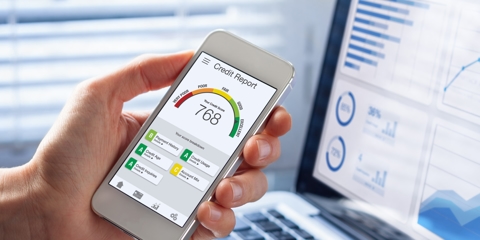Becoming unemployed, or a cutback in hours, is one of the top reasons why many people file for bankruptcy. Being unemployed without a steady source of income is a tough situation for anyone. By law, you do not have to be employed to file for bankruptcy. However, if you are unemployed your job status can affect the outcome of your bankruptcy.
Chapter 7 Bankruptcy
There are two main types of bankruptcy for individual filers in the U.S. The first is Chapter 7. Chapter 7 eliminates unsecured debts; such as credit cards, medical bills, and unsecured loans. Chapter 7 filers typically have little or no assets. Under a Chapter 7, creditors normally do not receive anything or receive very little, because the debtors have very few assets from which the creditor can recover.
Debtors in Chapter 7 bankruptcies must pass a means test. The means test compares the filer’s household income with the state’s median income for the same size household. If the filer’s income is below the median, he or she qualifies. If the filer’s income is above the median, he or she must show that there are high allowable expenses and very little disposable income. In a Chapter 7 debtors are not allowed to simply walk away from their obligations. If a debtor is unemployed, normally he or she would fall well below the income limits for a Chapter 7 bankruptcy, so the debtor could easily qualify.
Chapter 13 Bankruptcy
A Chapter 13 bankruptcy is different. In a Chapter 13 bankruptcy, the debtor pays back all or a portion of their debts over a three to five-year period. During this time, the debtors can catch up on back debts, possibly eliminate some of their debts, and even change the terms of some of their loans. In some cases, debtors file a Chapter 13 because they are not eligible to file a Chapter 7. In other situations, the debtors may choose to file a Chapter 13 instead of a Chapter 7 to take advantage of some of the benefits offered by a Chapter 13.
Debtors must make monthly payments to a bankruptcy trustee in a Chapter 13. The Trustee then distributes money to the creditors. Because of that requirement; Chapter 13 bankruptcies are for debtors with regular paychecks. Some debtors however, have other sources of income such as social security, pension, or investment income. If a debtor has no income, the court will normally not allow a Chapter 13 bankruptcy. If you have recently become unemployed and are contemplating bankruptcy, you should speak with a bankruptcy attorney. We are here to help, consultations are FREE and CONFIDENTIAL. You can visit us at Atlanta bankruptcy attorneys or call (404) 620-3337.





